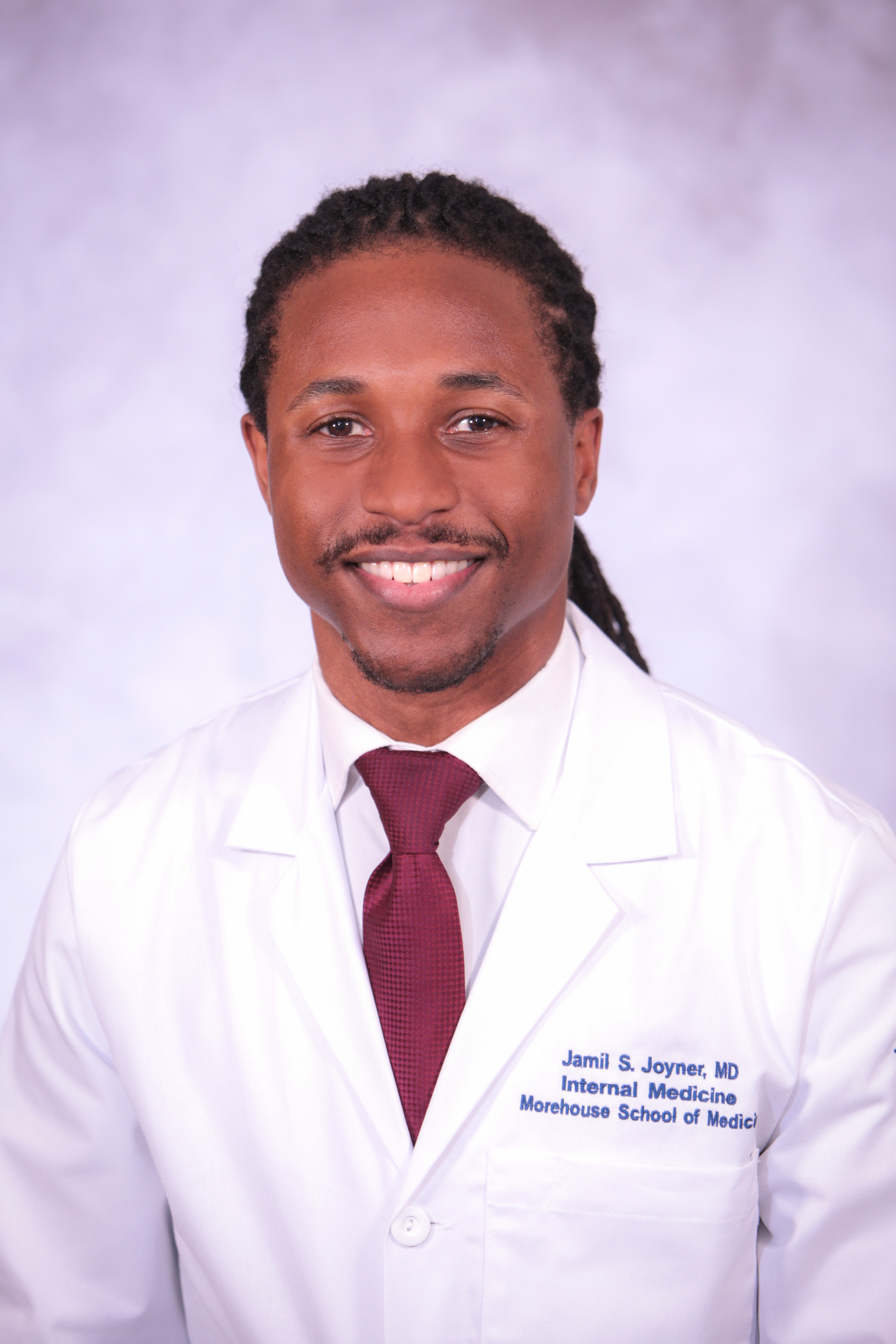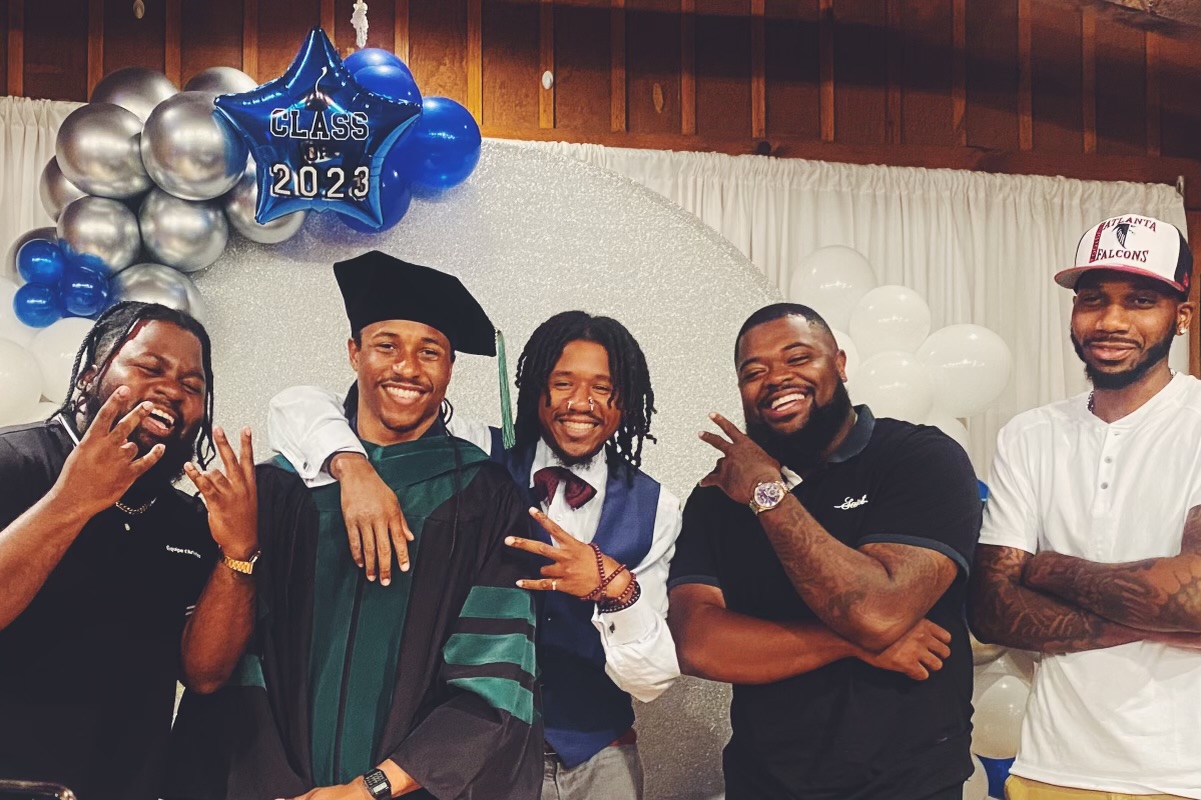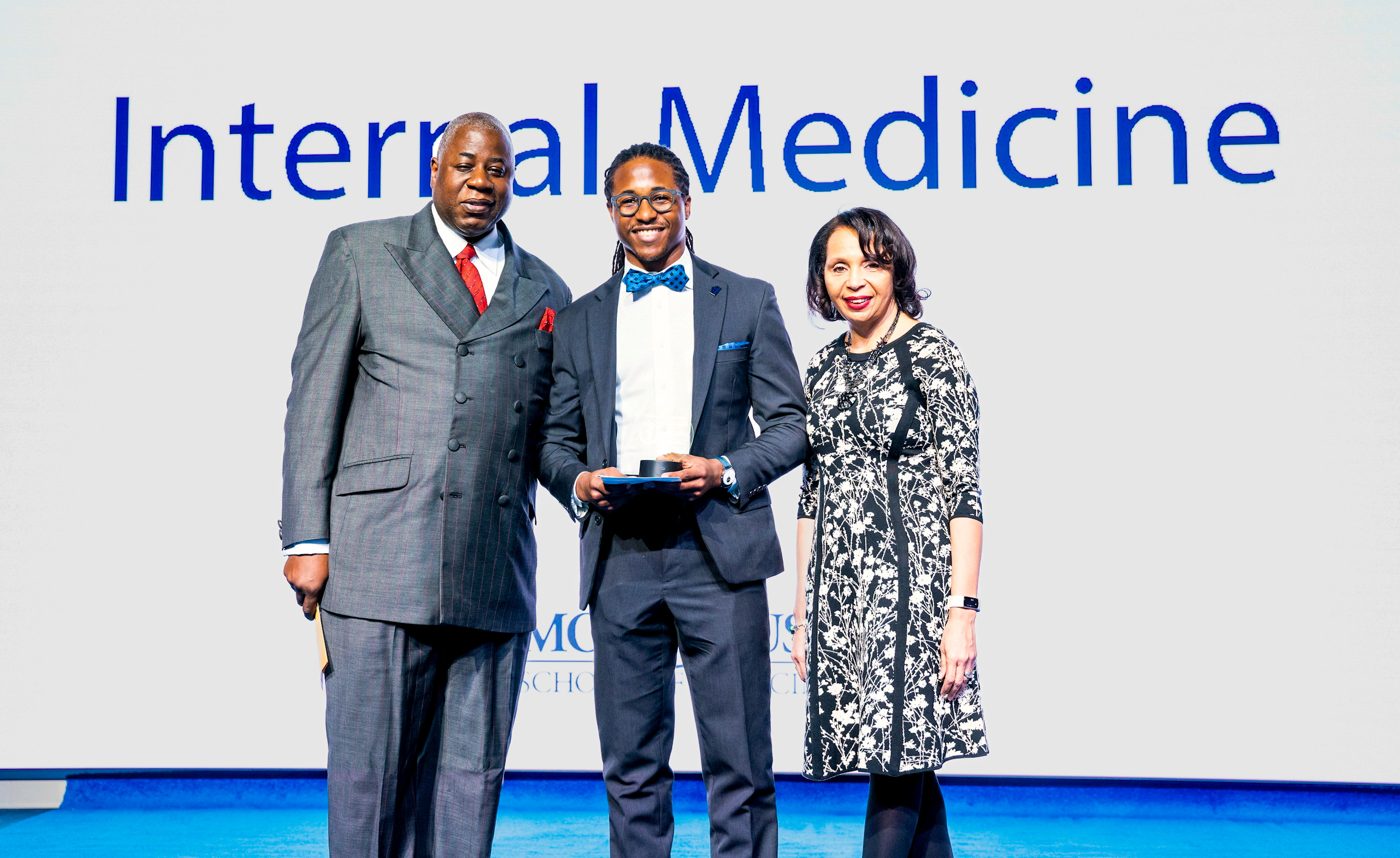Mental Medical Miracle – Dr. Jamil Joyner
 Picture this: Imagine growing up in a household where doctors were not seen as role models. Instead,
your family's history includes your great-grandfather, who worked as a sharecropper.
Could you ever envision yourself aspiring to become a doctor?
Picture this: Imagine growing up in a household where doctors were not seen as role models. Instead,
your family's history includes your great-grandfather, who worked as a sharecropper.
Could you ever envision yourself aspiring to become a doctor?
For many Black males, healthcare visits come with a noticeable absence: a doctor or other type of clinician who looks like them. This lack of representation affects not just the physical but also the mental and emotional experience of receiving care. When booking an appointment, especially if you are a Black male, how often do you find someone who reflects you? When you do manage to locate a healthcare professional of color, you often wait weeks or months to be seen.
The shortage of diverse clinicians is about more than just health care — it has ripple effects on communities. When a healthcare professional of color steps into an exam room, they don’t just address their patients’ physical symptoms but also provide comfort and trust. Having a provider who looks like you can be transformative, which is why it’s considered a “mental medical miracle.” It’s the feeling of being seen by someone who reflects you and understands your body, your concerns and your background. And when that clinician is not only of the same race or ethnicity as you but also the same gender, that comfort is magnified.
Research studies and other data show that Black men are overwhelmingly underrepresented in the healthcare field, making it difficult for male patients of all ages to find a healthcare professional who can provide the level of care and comfort they need.
Jamil Joyner, MD, is an example of what a mental medical miracle looks like.
Born and raised in metro Atlanta, Dr. Joyner is the youngest of three brothers. He is a second-generation Morehouse Man, following in the footsteps of his father and brother, but is also the first physician in his family. Dr. Joyner’s story is about more than just becoming a doctor — it’s about the power of representation. He shows that Black males can not only see a future in health and medicine but thrive while doing so.
After earning an undergraduate degree in biology, Dr. Joyner turned his attention to pursuing a Doctor of Medicine (MD) degree at Morehouse School of Medicine (MSM), convinced that the institution would make him a better person, student and physician.

MSM isn't like Georgia’s other medical schools. It plays a unique and vital role in a state where 50 of 159 counties have no Black doctors, despite Georgia having the second-highest percentage of African American doctors in the nation. More than half of the state’s Black doctors practice in just five metro Atlanta counties: Fulton, DeKalb, Cobb, Gwinnett and Clayton, according to the Atlanta Journal-Constitution.
Morehouse School of Medicine is on a mission to change that, intentionally seeking out and training students from various counties statewide to serve these underserved areas.
Since becoming an independent medical school in 1981, MSM has trained and graduated more than 900 students, with nearly 700 of them actively practicing in Georgia between 1980 and 2022. Of those students, three out of five identify as Black or African American. MSM’s mission is to lead the creation and advancement of health equity to achieve health justice by addressing primary healthcare needs through education, research, clinical care and service programs, focusing on underserved urban and rural populations in Georgia, the nation and the world.
Dr. Joyner, who also served as MSM’s Student Government Association president, is an example of how the Morehouse School of Medicine Graduate Medical Education programs prepare future health learners and leaders. MSM’s residencies range from core primary care specialties such as Family Medicine, Internal Medicine, Public Health and Preventive Medicine, Obstetrics and Gynecology and Pediatrics, to specific areas including Surgery, Psychiatry and Neurology. Through its partnerships with hospitals like Grady Memorial Hospital and Children’s Healthcare of Atlanta, MSM ensures that its residents receive the best training possible.
During the 2023 Match Day celebration, when fourth-year medical students find out where they will continue their training after graduation, Dr. Joyner proudly announced that he would be staying at Morehouse School of Medicine as an Internal Medicine resident. In his speech, he touched on how MSM provided him the opportunity to grow in himself and his education, and how the institution made him feel like part of a family:
“MSM is home. Not only is Morehouse School of Medicine the only medical school linked to a major hospital, where you can train with a cohort of co-residents, attendings and patients of diverse backgrounds, it is also at the nexus of what the future of health care looks like in metro Atlanta and Georgia. Morehouse School of Medicine allows me to stay close to my family – not just my biological family but the many classmates and educational mentors that I have acquired during my time at Morehouse College and Morehouse School of Medicine as well.”
MSM’s residencies and fellowships are designed to train a diverse group of physicians who will serve the nation in areas where access to quality health care is most needed. According to the Internal Medicine residency description, “We provide teaching, supervision and nurturing that gives our residents an opportunity for personal growth and clinical excellence. Upon graduation, our residents are prepared to pursue any number of career paths including subspecialty fellowships, hospital medicine, and international medicine.”
His pursuit of an Internal Medicine residency at Morehouse School of Medicine reflects Dr. Joyner’s passion for serving his community and his ambition to one day become a healthcare administrator and executive. He also represents the excellence that MSM nurtures in its graduates, embodying the institution's mission of diversifying the healthcare workforce and improving health equity. MSM’s commitment to training doctors of color extends far beyond the classroom. Its students are actively engaged in communities throughout metro Atlanta, including encouraging students of color at K-12 schools to pursue STEM careers.
Dr. Joyner’s story is about perseverance, representation and leadership. He found a home at MSM, a place that nurtured his ambition and allowed him to become the representation that so many young Black males need. As he completes his residency and builds his future practice, Dr. Joyner will be more than just a doctor — he will be the reflection that his patients need, the mental medical miracle that brings hope and healing to those he cares for and the community he serves.
Morehouse School of Medicine is celebrating 50 years as a leader in health equity. Our relentless effort to dismantle barriers and create equity for all begins with our changemakers. As we reflect on our journey of leading the creation and advancement of health equity to achieve health justice, we are honored to share the stories of those who have shaped MSM's legacy.
This blog post was written by the Office of IMpact and INnovation at the Morehouse School of Medicine.
About the Author
Zipporah Dorsey is a program coordinator with a passion for creative communication. She is storyteller at heart who believes every person has a story, and she is dedicated to bringing those narratives to life through creativity and collaboration.
Contact
Zipporah Dorsey
Program Coordinator
Office of Impact & Innovation
zdorsey@msm.edu

